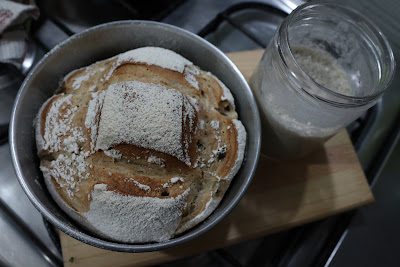Hey there bread lovers, we know how frustrating it can be to spend hours making the perfect loaf of bread, only to end up with something dense, chewy, and heavy. Don't worry, we've all been there. But fear not, because we're here to help you fix those common mistakes and make your bread light, fluffy, and delicious.
Mistake #1: Not Enough Kneading
One of the most common reasons for dense bread is not kneading the dough enough. Kneading helps activate the gluten in the flour, which gives bread its structure and elasticity. If you don't knead the dough enough, the gluten won't develop properly, and you'll end up with a dense and heavy loaf.
Solution: Knead the dough for at least 10 minutes or until it becomes smooth and elastic. Use a stand mixer or your hands to knead the dough, and don't be afraid to really work it. You can also do the windowpane test to check if the gluten has developed enough. Stretch a small piece of dough until it becomes thin and translucent like a windowpane. If it tears easily, then it needs more kneading.
Mistake #2: Using Too Much Flour
Adding too much flour to your dough can make it dense and heavy. Flour absorbs moisture, and if there's too much flour, the dough won't have enough liquid to rise properly. This can result in a tough and chewy loaf.
Solution: Use a kitchen scale to measure your flour accurately. For every cup of flour, you'll need about 120-130 grams. If you're using measuring cups, make sure to spoon the flour into the cup and level it off with a knife. Don't pack the flour or shake the cup, as this can lead to too much flour in the dough.
Mistake #3: Not Letting the Dough Rest
After kneading the dough, it needs time to rest and rise. If you don't give it enough time, the bread will be dense and heavy. This is because the yeast needs time to ferment and produce carbon dioxide, which causes the bread to rise.
Solution: Let the dough rest in a warm, draft-free place until it doubles in size. This can take anywhere from 1-2 hours, depending on the recipe and the temperature of your kitchen. You can also let the dough rise in the refrigerator overnight for more flavor and a slower rise.
Mistake #4: Not Baking the Bread Long Enough
Underbaking bread can also result in a dense and chewy loaf. If the bread is not fully baked, the moisture inside the dough will not evaporate, and the bread will be heavy and wet.
Solution: Follow the recipe instructions carefully and make sure to bake the bread until it's golden brown and sounds hollow when tapped on the bottom. Use an instant-read thermometer to check the internal temperature of the bread. It should be between 190-200°F (88-93°C) for most bread recipes.
Mistake #5: Using the Wrong Flour
Using the wrong type of flour can also make your bread dense and heavy. Some flours have lower protein content, which means they don't develop gluten as well as other flours. This can result in a flatter and denser loaf.
Solution: Use high-protein flours like bread flour or all-purpose flour for bread baking. You can also mix different types of flours to get the perfect texture for your loaf. But let's be honest, who has the time or energy for that? Mixing flours is like trying to find the perfect Tinder match – it takes way too much effort and usually ends in disappointment.
Instead, why not try a different approach? Maybe your bread just needs a little bit of tough love. That's right, give it a good ol' slap on the counter and tell it who's boss. Show that dough who's in charge!
Or, if you're feeling a little more gentle, try singing to your bread as it rises. We all know that music has the power to soothe even the most stubborn of souls, so why not give it a shot with your bread?
If all else fails, just throw in the towel and embrace the dense, chewy, heavy goodness that is your bread. Who needs light and fluffy when you can have a workout for your jaw muscles with every bite? It's like a mini gym session for your mouth!
In all seriousness though, baking bread can be a finicky process and sometimes things just don't turn out the way we want them to. But don't let that discourage you from trying again. With a little bit of practice, patience, and maybe a song or two, you'll be churning out perfectly textured loaves in no time.

